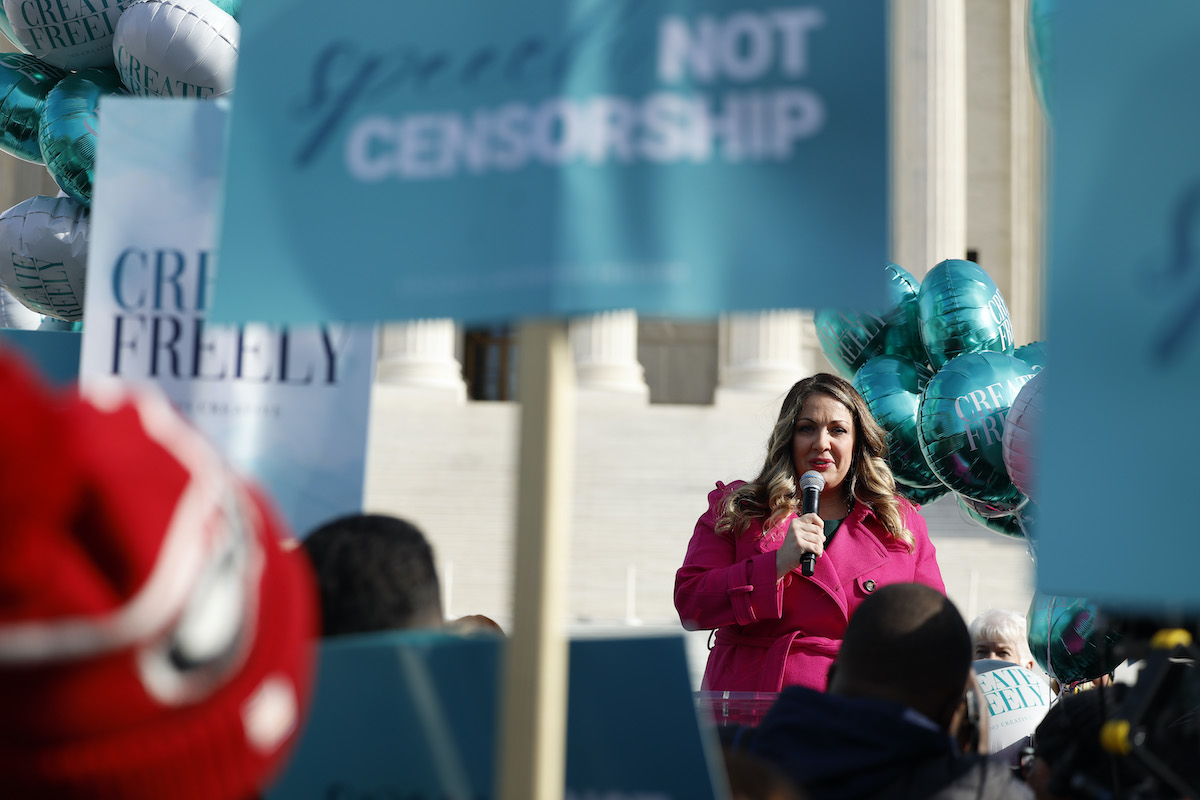The Supreme Court Has Left One of Its Biggest (and Stupidest) Cases for the Very Last Minute

The U.S. Supreme Court is wrapping up yet another momentous term. Despite being embroiled in multiple ethics scandals, this court still has the power to make decisions that have an enormous impact on our country and our lives. This term, they’ve gotten to rule on issues related to voter suppression (with shockingly positive results), Native children’s safety (also a surprising ruling!), immigration, online speech, and more.
The court has, perhaps unsurprisingly, left some of its biggest decisions to the very end. Tuesday, June 27 was the last decision day marked on the court’s calendar, but that day came and went and there were still about a half dozen decisions left to be issued, meaning we’re going to be getting some SCOTUS *bonus content* later this week.
The court still needs to issue a ruling in the affirmative action case—or rather cases, as they’re considering Students for Fair Admissions v. University of North Carolina and Students for Fair Admissions v. Harvard, two cases that address similar bad-faith arguments against the process of affirmative action in university admissions.
We’re also waiting on two rulings related to President Joe Biden’s $400 billion student loan debt forgiveness plan. Those are Biden v. Nebraska and Department of Education v. Brown, and they are hugely, immediately important to millions of Americans.
And then there’s 303 Creative LLC v. Elenis. This is an incredibly important case as it takes up issues of discrimination against LGBTQ+ people. It’s also very, very stupid.
The hypothetical gay boogeyman behind 303 Creative v. Elenis
303 Creative was brought by a website designer named Lorie Smith (pictured above) who is terrified that someday, someone, somewhere might ask her to design a wedding website for a same-sex couple. To be clear, she does not currently make wedding websites and she never has. (She says this is because she fears the possibility of being asked to do one for a queer couple, although I think the odds of that happening are slim given that, on top of everything else, her websites are very bad!)
Smith says Colorado is limiting her First Amendment right to creative expression but this is not about the “art” she wants to create, it’s about being a public-serving business. As the ACLU has noted, “The Colorado Anti-Discrimination Act (CADA) applies only to businesses that choose to serve the public, and requires that they not discriminate in doing so.” It doesn’t matter how “expressive” or “artistic” a business is. (And again, we’ve seen her portfolio. “Artistic” is a bit of a stretch.)
“Under Colorado’s law, artists are free to choose whether to sell their products or services to the public, and businesses that do serve the public are entirely free to choose what goods or services they provide. The law merely requires businesses open to the public not to deny service to some based on their identity,” writes the ACLU.
What makes 303 Creative LLC v. Elenis different from similar cases
303 Creative LLC v. Elenis is similar to previous landmark cases like Masterpiece Cake Shop v. Colorado Civil Rights Commission, in which a homophobe baker didn’t want to have to make wedding cakes for LGBTQ+ couples. Except again, Smith doesn’t even currently make the thing she wants the right to discriminate around. She’s not fighting any specific request, she’s just fighting for the hypothetical right to be a bigot in potential future scenarios. Which might actually be the point.
There is no reason the court should have taken up this case except that the ultra-conservative majority wants the chance to rubber-stamp the right to discriminate. And as legally flimsy as Smith’s case is, the thing that makes it unique is also what makes it dangerous.
Slate’s Mark Joseph Stern recently laid out the difference between Smith’s case and other, similar precedents. In past cases, the obvious victims were those being discriminated against—the engaged couples being denied a wedding cake and similar clearly wronged parties.
So, what’s the genius of this Colorado case? Well, Lorie Smith has never been asked to make a website, so there is no real victim. Instead, she gets to play the victim. She is the aggrieved party. She is the person who goes into court and cries crocodile tears and testifies that her feelings will be so, so, so hurt if a gay couple asks her to sell them a website and she has to do it. That has worked in the media. I don’t know how else to say it. That worked. Go online. Google Lori’s website, and you will see dozens of pieces in the New York Times, in the Washington Post, and in CNN. They sent their photographers out there to take pictures of her in the softest lighting, in her little studio with “Live, Laugh, Love” quotes on the wall. It was like: This poor, poor woman is having her rights trampled upon.
That’s exactly it. The Supreme Court is essentially hearing a case about white woman tears and it’s so upsetting to know it’s almost definitely going to work.
(featured image: Anna Moneymaker/Getty Images)
Have a tip we should know? tips@themarysue.com